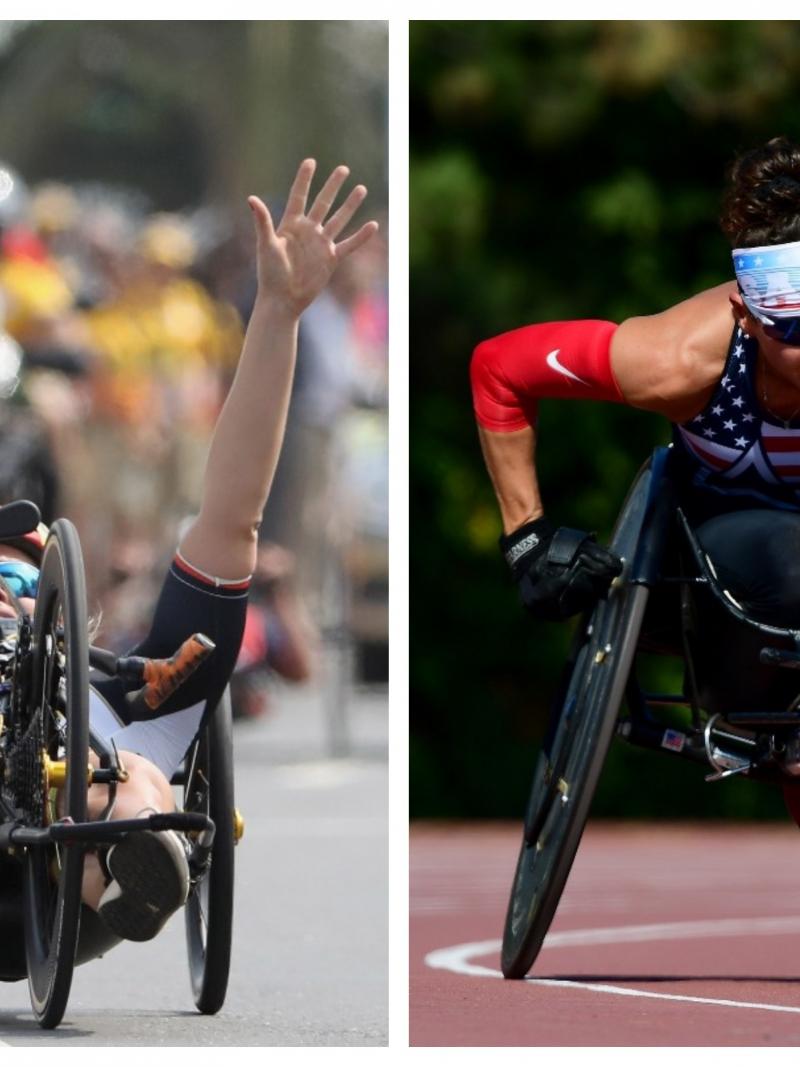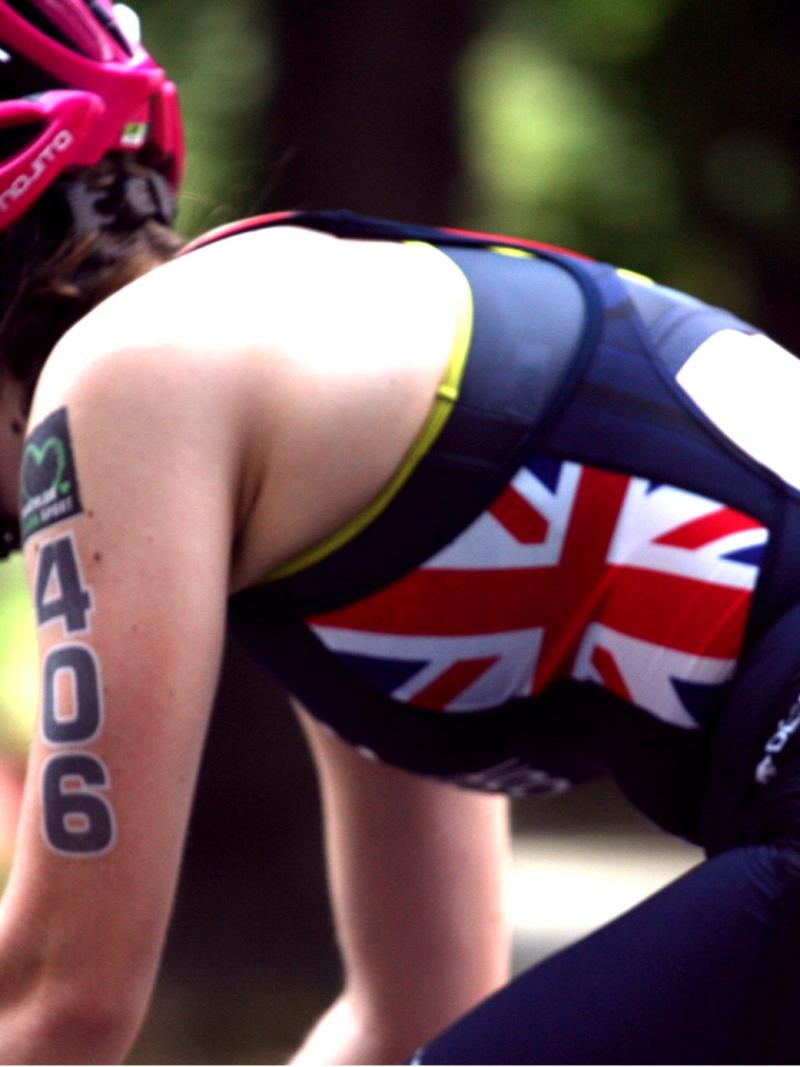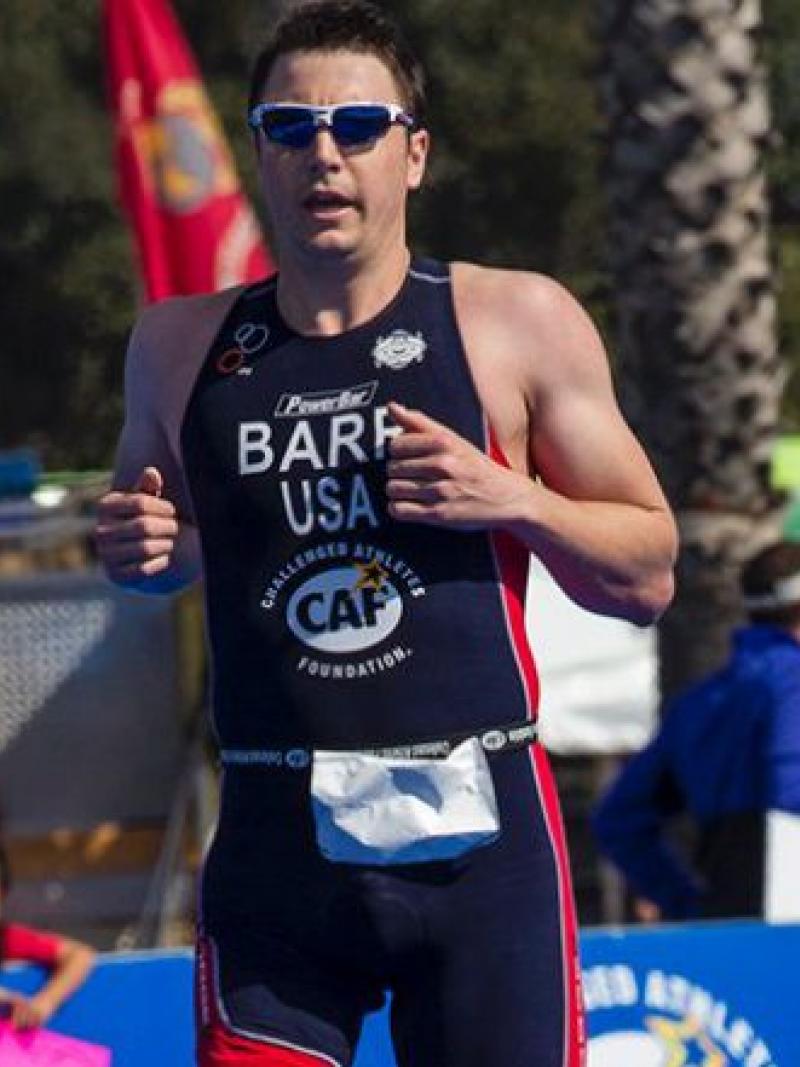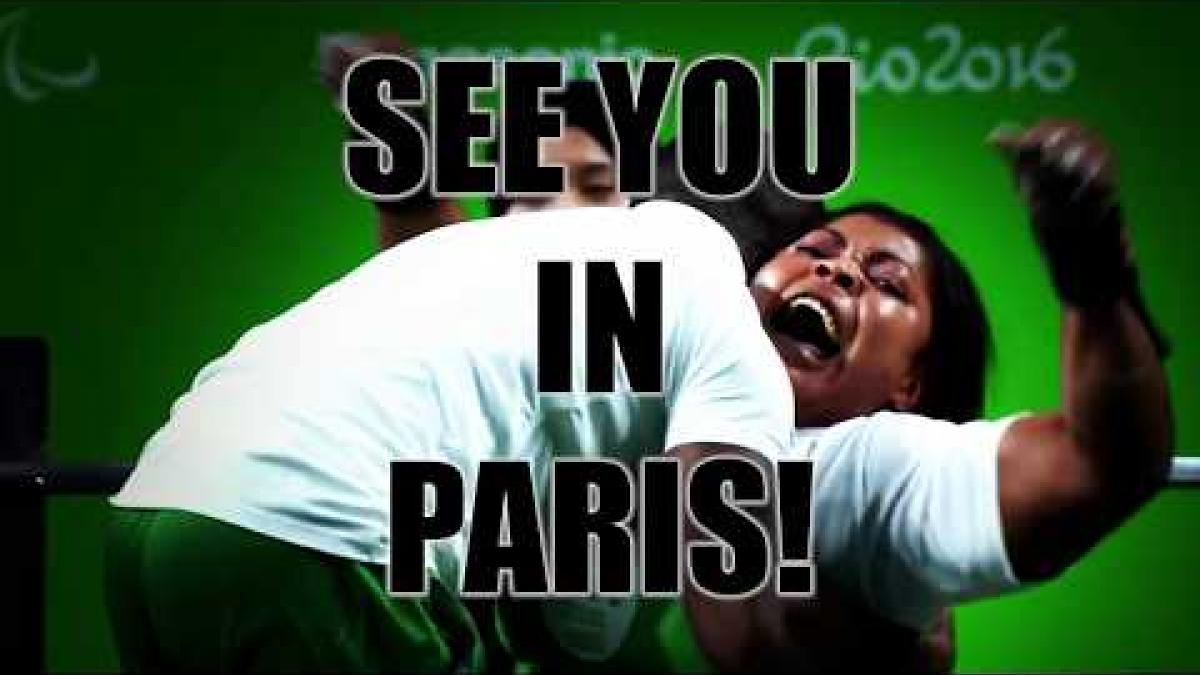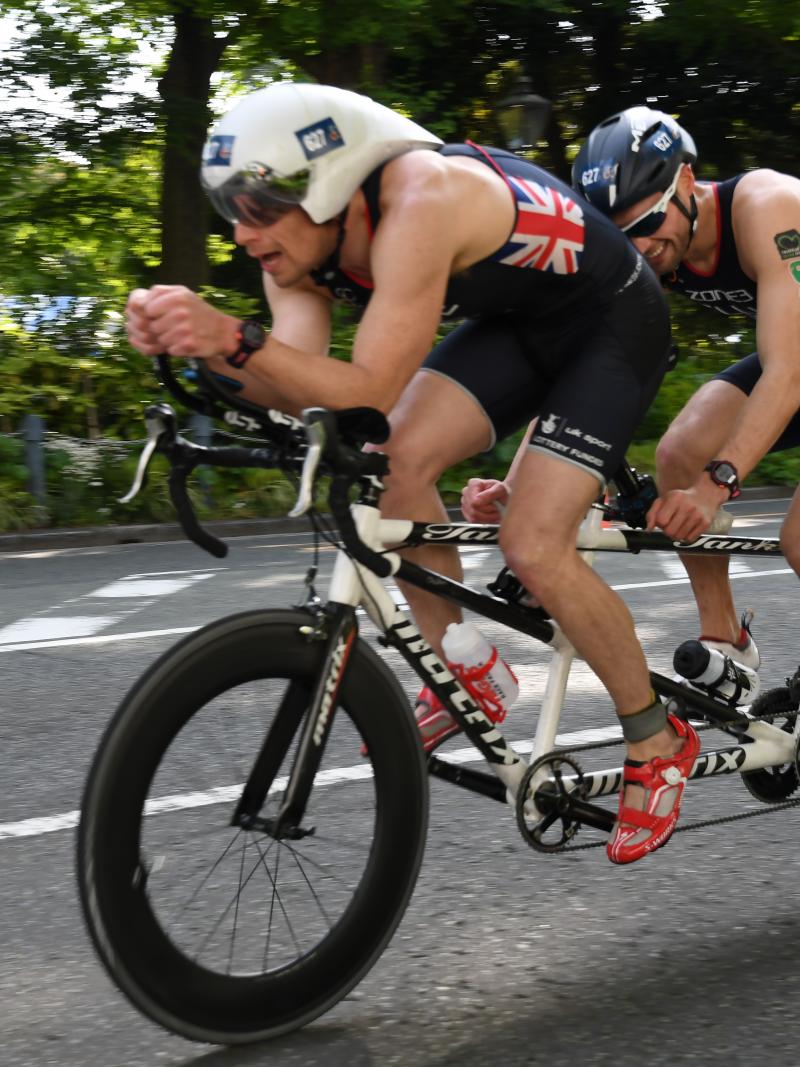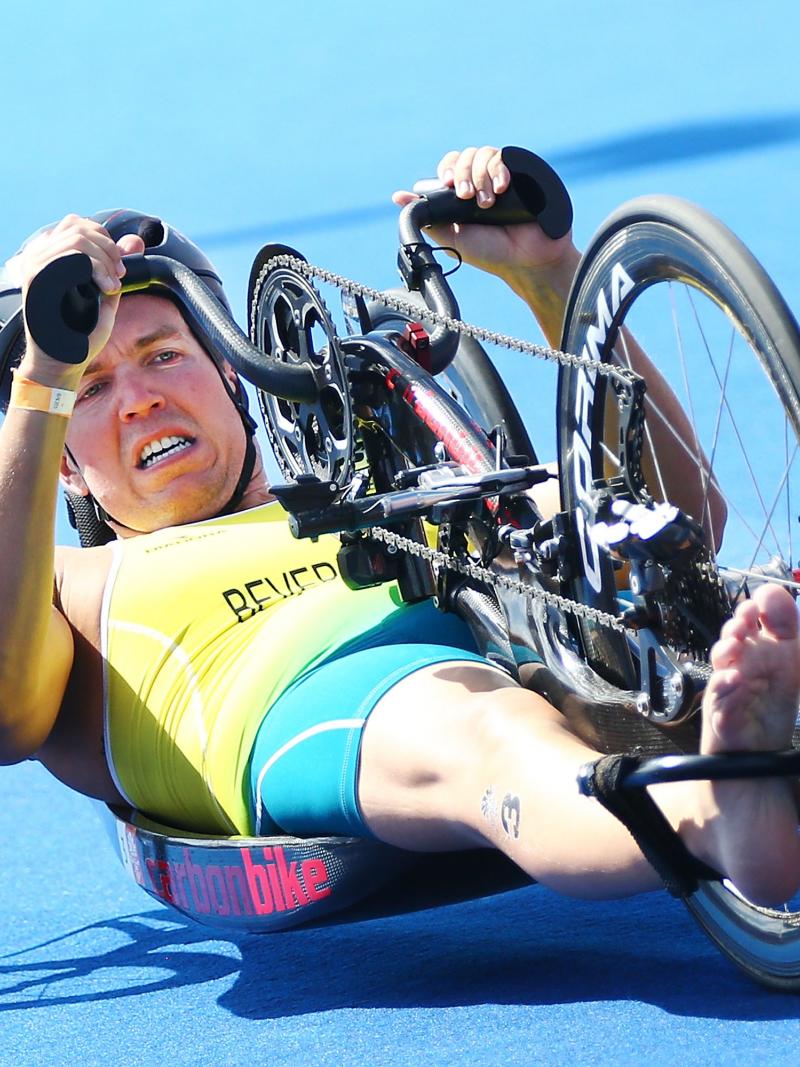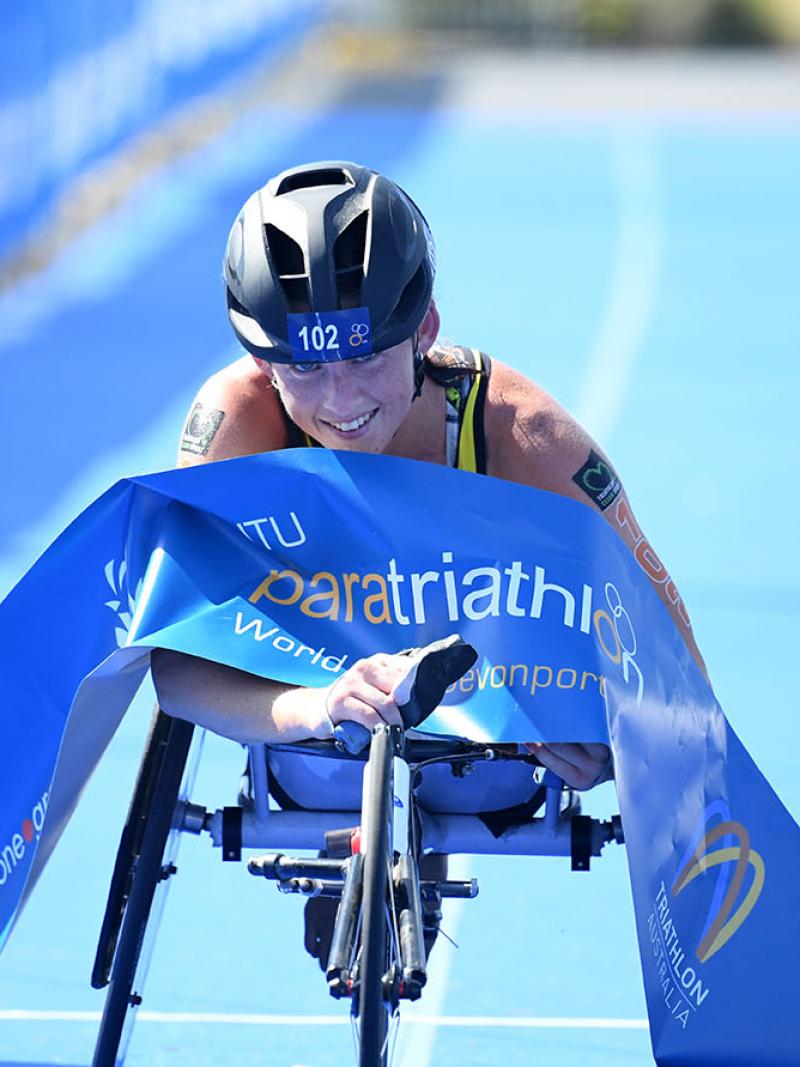Jessica Ferreira flying after triathlon switch
Cyclist-turned-triathlete targeting Paralympic place 16 Apr 2019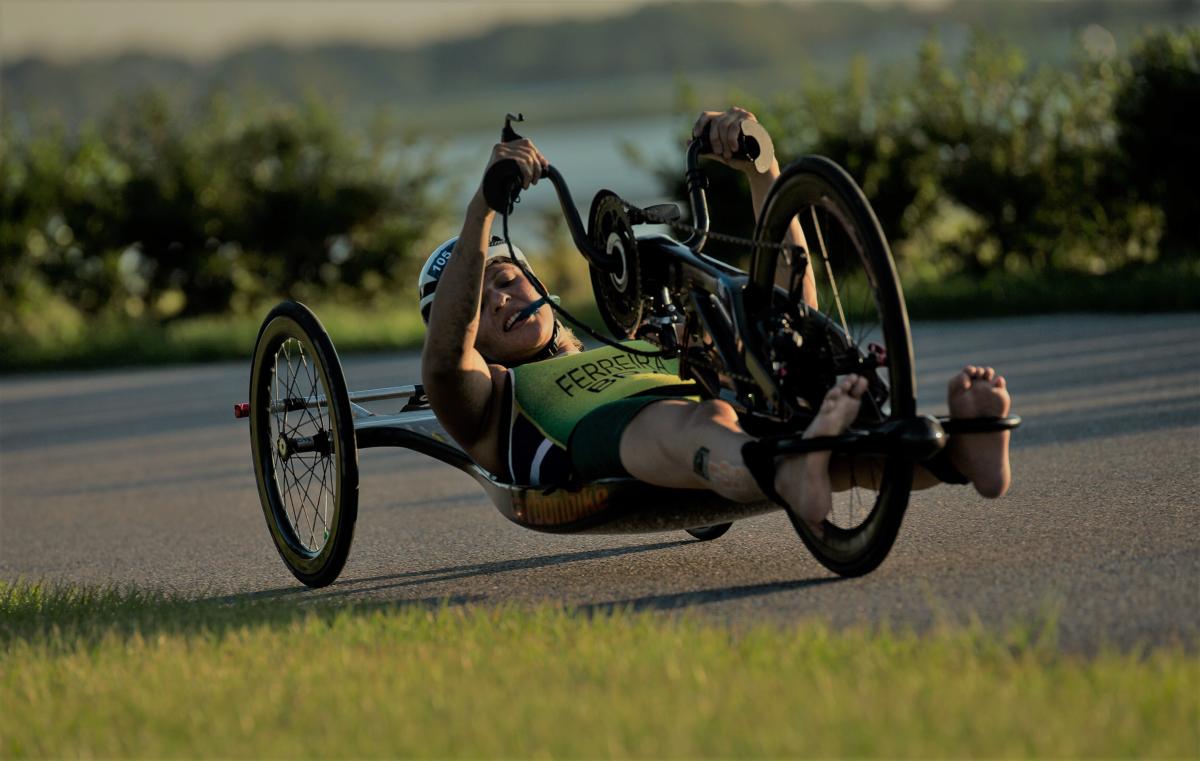
Jessica Ferreira has been a consistent podium finisher despite only taking up the sport in 2017
“My first year competing in triathlon was incredible and was much better than I could have ever imagined. I'm growing and learning a lot, and now I can set bold goals. To represent my country at the Paralympic Games in 2020 would be something very big and unique.”
Brazilian triathlete Jessica Ferreira was unable to swim and admits she knew almost nothing about triathlon two years ago, but, after making her international debut last year, she is now hoping to continue her rise to prominence ahead of the Tokyo 2020 Paralympics.
Ferreira will start as one of the PTWC (wheelchair) athletes to beat when the World Para Triathlon Series gets underway in Milan, Italy, on 27 April. But, until her cycling coach suggested she take up Para triathlon, Ferreira’s knowledge of the sport was limited.
“I knew Para triathlon existed, but I was only aware of the other classes; for amputees, people with upper limb impairment and so on,” Ferreira said on her introduction to the sport.
“I got to know it a bit better when the test event for Rio 2016 took place because I was able to see my class and envisioned it could be a part of the Tokyo 2020 programme. That's when I initially got interested.”
Not being able to swim has made the switch to triathlon more difficult for Ferreira, but the Brazilian has shown that she is a quick learner.
“I didn't know swimming when I first migrated to Para triathlon, so learning to swim has definitely been the hardest part for me,” Ferreira said.
“When I told my coach I didn’t know how to swim, he was impressed because it is something that usually takes longer to learn. It's only been one year and four months and I can say I've learned a lot.”
Rookie season
It has been a rapid rise for the Brazilian since first taking up the sport in December 2017; from learning how to swim to her debut season to now targeting a place at Tokyo 2020.
“My first year competing in triathlon was incredible and was much better than I could have ever imagined,” Ferreira said. “I won medals at international events and I reached a good placement in the world ranking.
“I'm growing and learning a lot, and now I can set bold goals. To represent my country at the Paralympic Games in 2020 would be something very big and unique.”
Just five months after making her international debut in Spain last May, Ferreira claimed her maiden victory, beating two-time world champion Kendall Gretsch to gold at the Sarasota World Cup in October.
In an event which was changed to a duathlon due to poor water quality, Ferreira showcased her blistering bike speed. But she knows improvements are required in the other two disciplines if she is going to challenge the world’s best.
“We're working on my swimming a lot and my running as I know I need to improve my times because it will be essential for getting better in triathlon,” Ferreira said.
Rapid rise
Ferreira’s rise in the sport reflects a familiar trend for Para triathlon in Brazil.
The number of Brazilian Para triathletes has increased by more than 20 per cent since 2016 to over 70 athletes.
With more triathletes competing, the Brazilian Triathlon Confederation are hoping the rise in participation translates to a first Paralympic medal at Tokyo 2020.
“We hope to have five athletes representing Brazil in Para triathlon in Tokyo,” Brazil’s Para triathlon manager, Rivaldo Martins said.
“This would be very significant compared to the two athletes we had in Rio de Janeiro. Our hope is that it goes beyond participation as we hope to bring our first Paralympic medal in Para triathlon back to Brazil.
“We hope that this greater number of Brazil participation in Tokyo and, maybe even a medal, will serve as an incentive for more people with disabilities to practice our modality, especially children and adolescents,” Martins added.

 Facebook
Facebook
 Instagram
Instagram
 Twitter
Twitter
 Youtube
Youtube
 TikTok
TikTok
 Newsletter Subscribe
Newsletter Subscribe

